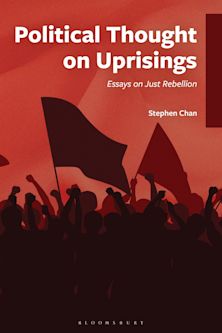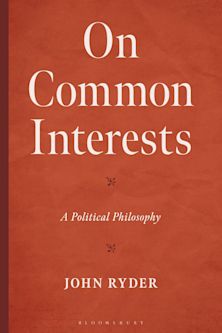- Home
- ACADEMIC
- Politics & International Relations
- Political Theory and Philosophy
- Political Dissent: A Global Reader
You must sign in to add this item to your wishlist. Please sign in or create an account
Description
This is a global anthology of great texts in the history of political dissent. Volume 1 spans the ancient and early-modern world, beginning with the Book of Isaiah, from the eighth century, BCE, and ending with John C. Calhoun’s “South Carolina Exposition,” from the early nineteenth century CE. Volume 2 begins with Elizabeth Cady Stanton and the “Seneca Falls Declaration of Sentiments,” from the mid-nineteenth century, and ends with the 2008 online Chinese human rights manifesto “Charter 08”. The selected texts come from across the ideological spectrum, representing a wide range of political, cultural, philosophical, and religious perspectives. Each text has been framed with an introduction that describes its historical context and importance and provides readers with assistance in interpreting the text—including explanations of unfamiliar terms and concepts. These introductions have been written for a general audience. Each text is also accompanied by a list of “Suggestions for Further Reading,” which points interested readers toward reliable sources for further exploration of the text, its author, and/or the historical moment or issues involved. This anthology should be accessible and useful to anyone from advanced high school students to scholarly specialists.
Table of Contents
Foreword to Volume Two
Chapter 1: The Seneca Falls Declaration of Sentiments
Elizabeth Cady Stanton, et al.
Chapter 2: Manifesto of the Communist Party
Karl Marx and Friedrich Engles
Chapter 3: Civil Disobedience
Henry David Thoreau
Chapter 4: What to the Slave is the Fourth of July?
Frederick Douglass
Chapter 5: God and the State
Mikhail Bakunin
Chapter 6: J’accuse… !
Emile Zola
Chapter 7: Of the Sons of Master and Man
W. E. B. Du Bois
Chapter 8: Freedom or Death
Emmeline Pankhurst
Chapter 9: Two Tactics of Social Democracy in the Democratic Revolution
Vladimir Ilyich Lenin
Chapter 10: The International Development of China
Sun Yat-sen
Chapter 11: Statement at the “Great Trial” of 1922
Mohandas K. Gandhi
Chapter 12: Einstein, Oxnam, and the Inquisition
I. F. Stone
Chapter 13: Milestones
Sayyid Qutb
Chapter 14: Letter from Birmingham Jail
Martin Luther King, Jr.
Chapter 15: In Quest of Democracy
Aung San Suu Kyi
Chapter 16: Charter 08
Chinese Human Rights Defenders
Copyright Notices
About the Editor
Product details
| Published | 16 Dec 2011 |
|---|---|
| Format | Ebook (PDF) |
| Edition | 1st |
| Extent | 308 |
| ISBN | 9798216347385 |
| Imprint | Lexington Books |
| Publisher | Bloomsbury Publishing |
About the contributors
Reviews
-
This second volume of Political Dissent brings together a set of forceful, eloquent, and accessible readings—from The Seneca Falls Declaration to Charter 08 of the Chinese Human Rights Defenders, from Thoreau to Einstein, Gandhi to Qutb, Douglass to Du Bois to King. Derek Malone-France has done a remarkable job of selecting diverse and important statements of dissent, and of offering a lucid, concise introduction to each. His book is an important resource for anyone interested in how writers have argued for political and intellectual freedom.
Joseph Harris, Duke University
-
Readers can certainly find these selections elsewhere, but the strength of this volume lies in how well the author has framed this collection of writings. This work goes a long way towards illuminating dissent as a vital genre of rhetoric and literature. The short essays which introduce each selection are very well-written, accessible, and grounded within the particular debates and historical conditions animating each author.
Cedric Johnson, Hobart and William Smith Colleges
-
We normally think of 'dissent' as minority opinion, as side-currents from the mainstream. By drawing on a wide variety of examples from around the world, this fine collection shows how dissenters are, indeed, lonely and courageous voices within their historical contexts, but also squarely at the center of the universal human quest for freedom, equality, and justice. The dissenters collected here, if put in the same room, would easily agree on fundamentals, and would speak for the mainstream of humanity.
Perry Link, University of California, Riverside



































